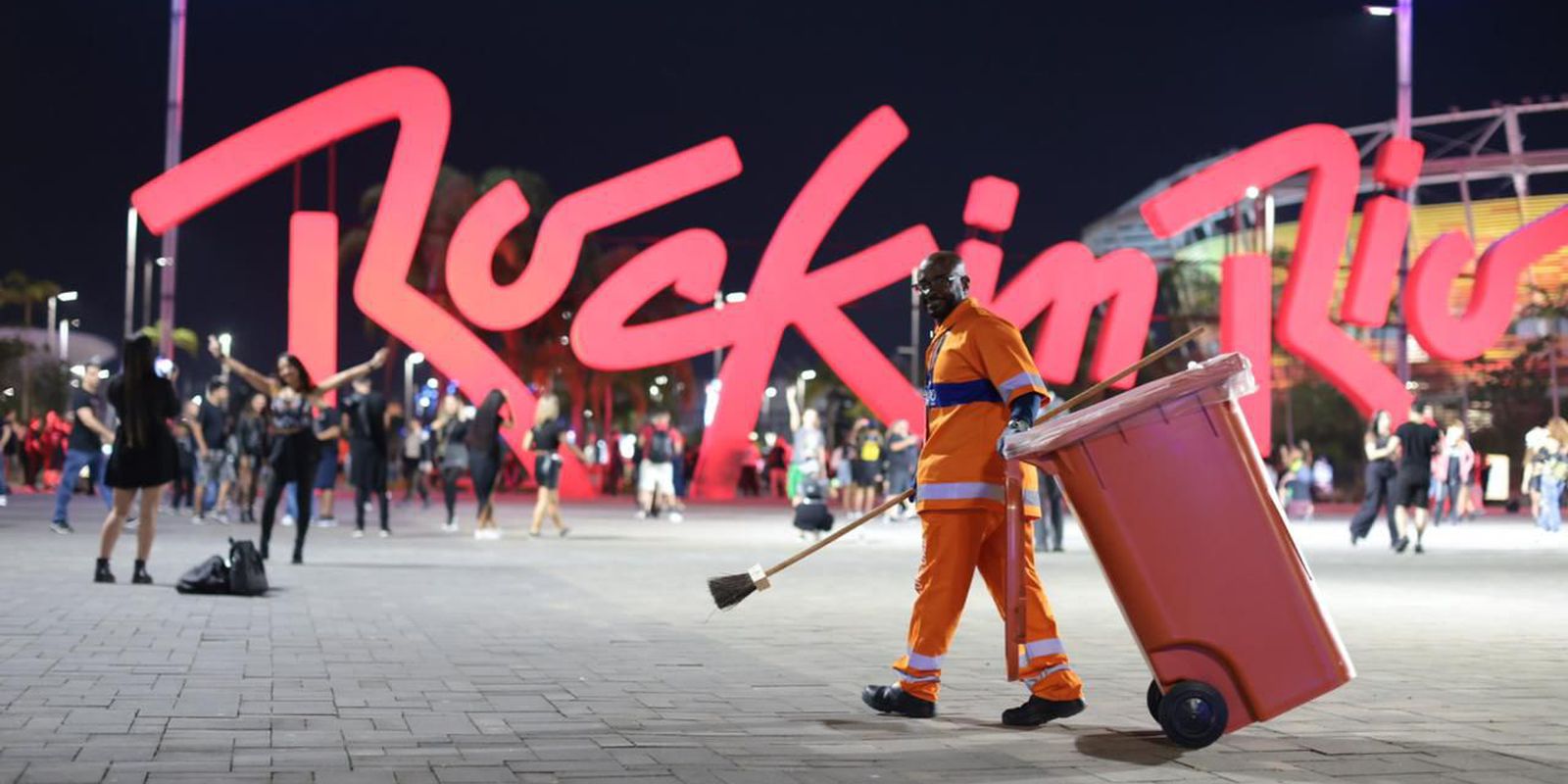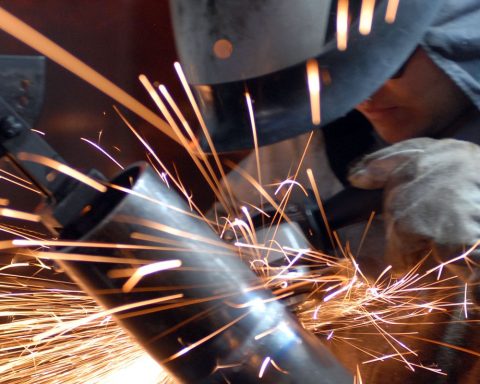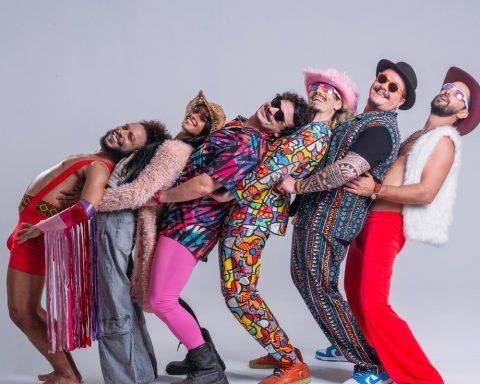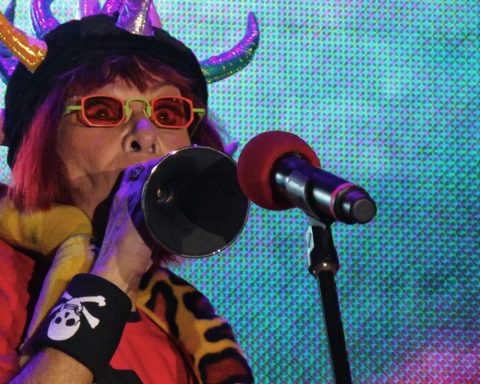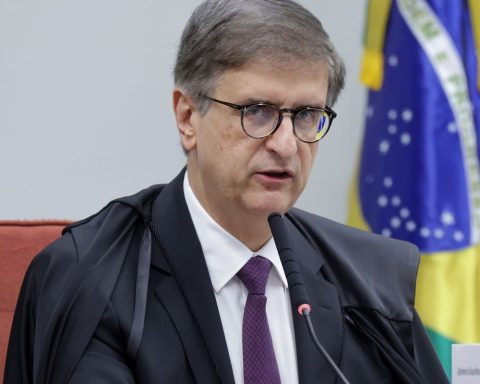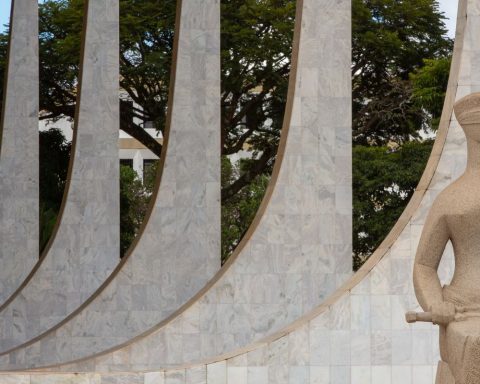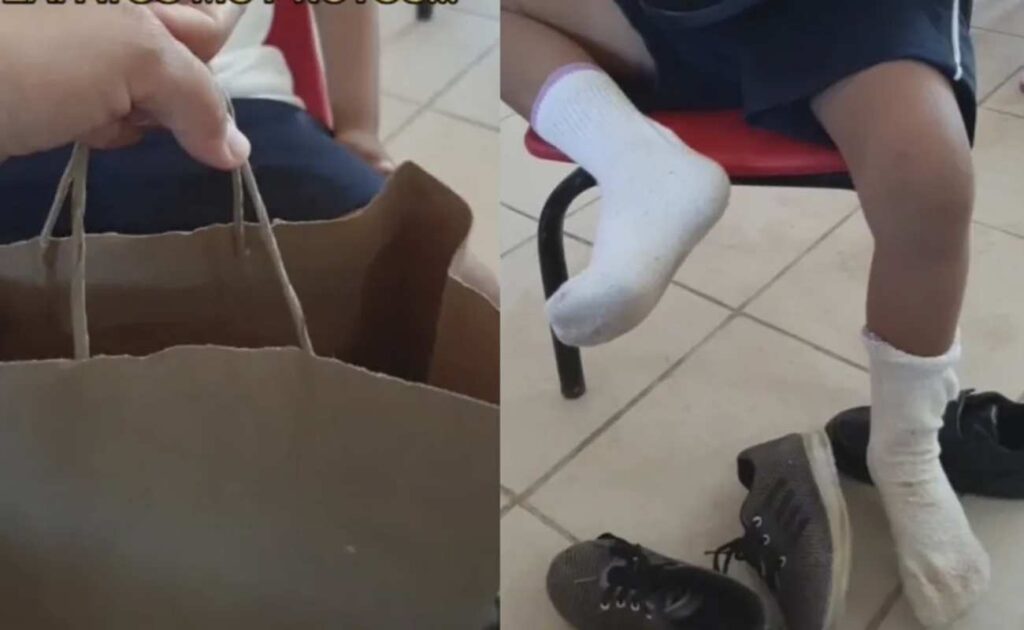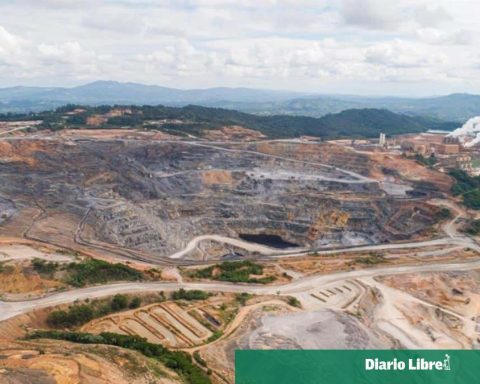The Municipal Urban Cleaning Company (Comlurb) collected 110.5 tons of waste in the first two days of the ninth edition of the Rock in Rio music festival, which began last Friday (2) at the Olympic Park, in Barra da Tijuca, west side of the city of Rio de Janeiro, bringing together great names of national and international music.
The company works daily at the site with around 1,000 street sweepers, indoors, to manage the event’s waste by sweeping public circulation areas, lawns, food courts, VIP area, backstage, arenas and velodrome. Another 181 street sweepers work on the outside, including the access roads to the City of Rock.
Comlurb is also responsible for the correct destination of the generated waste, with potentially recyclable waste being directed to collectors’ cooperatives chosen by the festival organizers and accredited by the company, which sell them to recycling companies, generating employment and income.
Organic waste is taken to Comlurb’s EcoPonto do Caju, where it is used for composting and transformed into biogas for energy generation, biofuel or soil conditioner, in the biomethanization unit, the first in Latin America. To facilitate the correct disposal of waste, around two thousand containers were distributed, both inside and outside the City of Rock.
Sustainability
Of the 110.5 tons of waste collected by Comlurb so far, 37.98 tons of recyclables were sent to the startup Reutiliza Já and the National Association of Recyclable Material Collectors (Ancat), which will guarantee the traceability of waste during Rock in Rio 2022 and the sustainability of the event.
For this, technology will be used blockchain (advanced database engine that allows transparent sharing of information). Integrated with the provision of services by cooperatives of recyclable material collectors, this technology allows each material discarded in the garbage to be monitored, measured, separated, weighed and sent to the right destination.
The objective is to guarantee the traceability of residues, from the moment of consumption at the festival to the recycling cooperatives and, from these, later, to the industries, to transform them into raw material again for the production of packaging for new products, guaranteeing the circularity of materials. Of the total of 37.98 tons of recyclable waste sent to collectors, most (20.94 tons) is plastic, followed by aluminum (5 tons).
The founder and executive director of Reutiliza Já, Humberto Bahia, told Brazil Agency that it is not enough to send waste for recycling. “We have to inform and educate and, after more humanized communication, we have to measure this, make this measurement increasingly efficient through technology”.
The technology blockchain helps to certify that the numbers obtained are real and that there were no deviations of materials to the industries. “After the measurement, we will reuse it and send it to the transformers that arrive in the industry. Afterwards, this returns to society”, highlighted Bahia.
The director of Reutiliza Já stated that at the end of the process, it will be possible to know how many trees were preserved and how much was saved in terms of water and energy, for example. The idea is, without using too technical terms, to be able to pass on the results achieved to the population.
For Humberto Bahia, the level of traceability and transparency of waste management in this edition of Rock in Rio is unprecedented in the world: “There is nothing more current than dealing with what is ours, the planet. I think Rock in Rio is always a few steps ahead”.
Scoreboard
Ancat operates the largest reverse logistics program in the country, Reciclar pelo Brasil, in collaboration with 17 large companies in the country. The entity’s president, Roberto Rocha, stated that the biggest difference from the current Rock in Rio project is that the operation’s technology now allows the monitoring of each stage, guaranteeing the circularity of the material.
“The new technology introduces a new service provided by the category in a digital age, being an innovative moment, a unique and pioneering solution around the world, promoting the role of waste pickers within the circular economy and ESG (environmental, social and environmental governance) requirements. corporate), and contributing to the generation of income and professional development”. Rocha concluded that this is a great social legacy not only for future events, but for the planet.
At the end of the 9th Rock in Rio, the Recycling Scoreboard will be implemented. It is a socio-environmental calculator that measures the impact of the initiative based on the disclosure of performance indicators and scientifically validated socio-environmental metrics.
After the attractions this Sunday (4), Rock in Rio returns next Thursday (8) until next Sunday (11).
